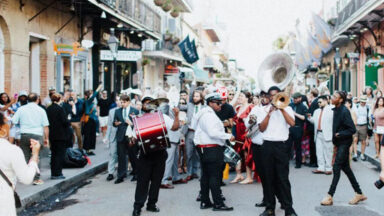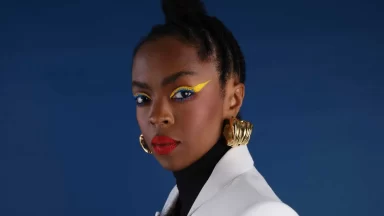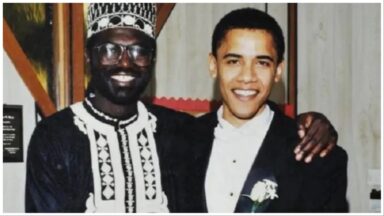Documentary filmmaker Stanley Nelson, Jr. may not be a household name in your household, but you know his work. Former NFL star, Michael Vick, jazz icon Miles Davis, historically Black colleges and universities and the Black Panther Party for Self-Defense have all been viewed through Nelson’s lens. Though “Civil War” documentarian Ken Burns may be better known by the mainstream, Nelson owns the lane of Black filmmakers who are telling Black stories on their own terms.
He who tells the story owns the story and when Black history is distorted, its often because it has been told by those who view it through a biased perspective. How many times have white filmmakers charged with telling Black stories focused on Black dysfunction or pathology instead of the rich culture that you can only truly appreciate from the inside? Would not a Jewish filmmaker like Stephen Spielberg, tell a different story of the Holocaust than someone whose history doesn’t include it?
Nelson’s own story reads like a Black history fact. Nelson, 68, is not the only prominent member of his family. HIs father was a pioneering dentist and his mother, A’lelia, was a librarian and the last president of the original Madame C.J. Walker Manufacturing Company. Nelson’s sister, journalist Jill Nelson, wrote “Volunteer Slavery: My Ultimate Negro Experience” which won an American Book Award.
‘Miss Juneteenth’ And The Power Of The Black Beauty Pageant
Nelson started his career with the legendary William Greaves, a pioneering Black documentary filmmaker who made over 100 documentaries and was nominated for four Emmy Awards.
“I got into documentary filmmaking in the 70s and I came in the wave of Black filmmakers,” Nelson said in a recent interview with Blackamericaweb.com. “Then all of a sudden there were Black people in front of the cameras but a limited number behind the camera.I was in college at the time, took a film class and liked it and switched my major. William Greaves Productions was the only black man who had his own production company. I fell into it – it wasn’t an economic choice, it was just happenstance.”
From working with the late Greaves, who did a documentary on the controversial National Black Political Convention in 1972 that was released in a severely edited version, then lost, then recovered and restored, Nelson, now 68, learned the basics of documentary filmmaking. He says the choice to do documentaries instead of fictional feature films was relatively easy.
A three-time Emmy winner, Nelson’s career began with a 1998 documentary “Two Dollars And A Dream about Black hair entrepreneur Madame C.J. Walker. Since then, Nelson has covered the Freedom Riders, Marcus Garvey and the life and death of Emmett Till. His most recent docs – “The Black Panthers: Vanguard of the Revolution” (2015) “Tell Them We Are Rising: The Story of Black Colleges and Universities” (2017) “Miles Davis: Birth of the Cool” (2019) and his first ESPN “30 for 30” doc on Vick, released last month, show the range of his work.
Source: Documentary Filmmaker Stanley Nelson Says Black People Need To Tell Their Own Stories



Recent Comments